Meeting of the Renaissance Society of America
Materias de especialidad:
Descripción:
Submission of proposals:
Please indicate the name of the panel that interests you and send a single page with both an abstract of less than 150 words and a brief curriculum vitae to both of the following: Susan Byrne (susan.byrne[at]yale.edu) and David A. Boruchoff (david.boruchoff[at]mcgill.ca). Proposals must be received by 25 May 2015.
Please note:
Presentations may be made in English (the primary language of the RSA) or in Spanish, and should bear in mind the interdisciplinary makeup of the RSA, as well as the need to be intelligible to scholars whose primary interests and expertise may lie outside the Spanish-speaking world.
The RSA permits participants to give only one paper at its annual meeting.
All presenters must be or become members of the RSA and must register for the meeting.
Submission of a proposal implies that one will subsequently participate in the meeting if selected. The RSA is considering sanctions against those who withdraw after being selected or fail to attend the meeting. For more information on the annual meeting, see the RSA website: www.rsa.org
Información adicional:
Proposals are invited for the following sessions sponsored by the RSA Division in Hispanic Literature and the Cervantes Society of America-Spanish Letters Under the Catholic Monarchs and Charles I of SpainImpacts, developments or practices relating to Humanism, religious reforms, the recovery of the classics, exchanges between Spain and other nations, philology, etc.-Hybrid Genres of the Spanish RenaissanceWhat do hybrid genres tell us about the development of the literary art? What did Spanish writers say about, and do with, genres, forms and styles that appear mixed from either their or our perspective?-Lope de Vega in ProsePapers on any aspect of the canonical playwright’s “other” writings: La Dorotea, La Arcadia, the Novelas a Marcia Leonarda, the letters, etc.The Life-Cycle of the Book in Early Modern SpainThe gestation, birth or afterlife of best sellers.Unread, unloved or aborted masterpieces.Prohibited or expurgated works.Collective authorship.Packaging, marketing and promoting books.Purloined LettersPlagiarism, false authorship, unauthorized publications, misleading or self-serving commentaries or translations.Cervantes and Shakespeare: Works and Lives in Common?Papers can include early (pre-1700) adaptations or translations between Spain and England, with a focus on the two authors whose quatercentenaries we celebrate this year.Miguel de Cervantes’s Persiles, 1616-2016Papers on how the Persiles has been, should be or might be read.Cervantes as Critic or ReaderWhat does Cervantes tell us about writings from his or earlier times, and how to read them?
País:
